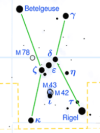That's irrelevant to what I am trying to convey.
Wrong.
All the rest of what you wrote just displays abyssal ignorance of the history/archaeology.
OH, sort of like the Shaolin Monk challenge, where I need to beat up 20 guys at the same time before I can compete with the higher ups?
OK
1. on your list: Michael Witzel reconstructs a single original African source for our collective myths, dating back some 100,000 years. Identifying features shared by this "Out of Africa" mythology.
And no, I do not follow the Out of Africa theory, and neither do quite a few modern scholars. It has been disproven in peer-reviewed articles many times in the last 10 years.
2. Plato wrote of two ancient civilizations that flourished more than 9000 years before his time. And I agree that there was more than one that flourished even earlier than that. I've read him.
3. When Zarathustra Spoke by Settegast. Zarathustra was an Iranian-Iraqui religion from a time after the Sumerians. By the way, don't fall for the line that the Sumerians began writing in 4000 BC, because I have on my desktop symbols written that have been dated to 7500BC and the symbols on the sides of Gobekli Tepi, from much earlier, are in Sumerian as well, and I have translated them as well. What many do not know is that the Zarathustra influenced fire-bird, represented by markings made in the stones of Neolithic Iran, was later adopted for the Jewish Menorah, just as the star symbol of ancient Sumeria was adopted later by the Israelites.
4. The Ancient Near East by Liverani (super excellent). Yes, this is a good scholarly work, but it is not on the topic that I brought up - Sumerian translations, and erroneously translated proverbs.
5. Philosophy Before the Greeks van de Mieroop. Again, this is on Babylonaian (which was Amorite controlled and populated) philosophers, who rewrote what they thought they understood of the Sumerians, but did not. "The problem is that the title makes it sound like the Babylonians did something like Greek philosophy that influenced the Greeks, and the author doesn't even *try* to establish this. (that last is from a comment on his book)." I saw an interesting page from an Egyptian who claims that van de Mieroop is a white Dutch guy who knows nothing about the Egyptian culture or people and is basically writing from a white European point of view. Huh.
6. From Hittite to Homer by Bachvarova. YES. This one proves my points above, exactly. From its blurb: "This book provides a groundbreaking reassessment of the prehistory of Homeric epic. It argues that in the Early Iron Age bilingual poets transmitted to the Greeks a set of narrative traditions closely related to the one found at Bronze-Age Hattusa, the Hittite capital." And the Hittites stole from the Hurrians and Hurri and Hatti, who were much earlier, and then the Hurrians went to work as Sumerian scribes and then as the tribe of Abraham joined the fierce Amorites and conquered Canaan.
7. The History of Ancient Palestine by Ahlstrom. Although dated this is an excellent one volume history of the ancient Levant. Which he calls Palestine to some degree, and is the land as it was BEFORE the Amorites under Abraham arrived. Good book, and nothing to do with the Sumerian writings that I posted about. Also way too late in the timeline.
8. The Origins of Biblical Israel by Davies. His own, solicited Review states: "Suffice it to say that Davies' hypothesis will undoubtedly stand as one of the principal proposals for solving the puzzling Israel=Judah terminological equation...He has demonstrated convincingly that ''Israel' in the Hebrew Bible is not a historical community but an identity claimed by several communities' ". I agree that the word Israel was a self-proclaimed accomplishment and not perhaps a legal institution. I do translate paleo-Hebrew so I am quite familiar with the Judeans and the differences between them and the Israelites, culturally and politically speaking. Jesus' birthplace in the territory of Judah was considered at the time as a sort of country bumpkin area by the more sophisticated people of Jerusalem.
Davies is closely associated with the movement known as The Copenhagen School (other figures include Niels Peter Lemche, Keith Whitelam, and Thomas L. Thompson), a loosely knit group of scholars who hold that the Bible's version of history is not supported by any archaeological evidence so far unearthed, indeed undermined by it, and that it therefore cannot be trusted as history. But I believe that I already mentioned that the Bible is not history in my post above.
9. The Bible Unearthed by Israel Finkelstein and Neil Asher Silberman. It doubts the veracity of the bible. As I mentioned above, I do as well. I've read all three of the works.
10. Early History of the Israelite People by T. L. Thompson. "Thompson argues that none of the traditional models for the origin of biblical Israel in terms of conquest, peaceful settlement, or revolution are viable. The indigenous nature of the Israelite people has roots that lead back to the late Neolithic period." I agree with the Neolithic period roots, but those roots are in Syria and not in Canaan. Sure they mixed with the locals, to some degree, but the leaders did not. When Abraham needed sons for Lot and others needed new blood for sons they turned to Haran, in Syria to get them. They went back to their roots in the Hurrian controlled lands bordering on Turkey that were very associated with the Amorite neighbors and the Assyrians as well.
11. The Invention of the Jewish People by Shlomo Sand. He posits that modern Jews are largely descended from converts and the Jews of the Bible remained in the Middle East and eventually became the modern Palestinians. I would go further and state that most modern Jews are Ashkenazi converts from the Ukraine region originally. But nothing to do with my post. It's funny that all of these Jewish authors you mention are so willing to slander (but it's not really slander because it's the truth) their own people for money. But a buck is a buck.
12. Prologue to History by John van Seters. In this fascinating study, John Van Seters makes a compelling case for a new reading of Genesis. Which is what I did when I gave you the "eth", meaning "as it was written in Cuneiform" from Genesis, which was left out of our Bibles. Please see my mention of that above.
13. In Search of History by John van Seters. John van Seters again shows that the Bible was not historical. As I stated.
14. The Life of Moses by John van Seters. He proposes that the Yahwist (J) wrote most of Genesis, Exodus, and Numbers during the Babylonian exile and that there was no Elohist (E). It seems that he believes that much of the text comes from the imagination of J, expanding on Deuteronomy, which had already been written down before the Babylonian exile. Possibly. It's against what traditional scholars claim but to me it really makes no difference which of the three or more groups wrote which portion, and when. Did you know that the word "Enki" is found in the Old Testament some 306 times, most frequently in pleas of "Enki save us?" Yes, it is. From the Yahwist scholar group of authors, one of my favorites.
Since you asked me to read three books by van Seters, here's one of his theories: "Van Seters’s doctoral dissertation was on the problem of the Hyksos (Yale, 1965), and published as The Hyksos: A New Investigation (1966). It challenged the consensus view about these foreign rulers of Egypt in the mid-second millennium BCE on a number of points. On the matter of their origins, they were not Hurrians from northern Syria and Anatolia, they did not invade Egypt with chariots and horses and their capital city of Avaris was not to be located in the vicinity of Tanis. Instead, these foreigners came from southern Palestine, migrating into the eastern Delta during a period of political decentralization in the Second Intermediate period and eventually established the capital of their kingdom, Avaris, at Tell ed-Dab‘a. " Yes, as many scholars are now aware (myself included) the Hyksos were Hebrews or actually their Amorite/Hurrian mixture prior to the establishment of Israel. I did mention that the Amorites were fierce, and took Assyria, Sumeria and beat up the Akkadians, right?
15. Biblical Narrative and Palestine's History by T. L. Thompson. "The essays employ comparative and formalistic techniques to illuminate the allegorical and mythical in Old Testament narrative traditions from Genesis to Nehemiah." Yes, much of the Bible is allegorical and mythical, but the myth part was copied from Sumerian texts which they helped to translate in the time of Abraham as Hurrian scholars, as I mentioned above.
16. The Invention of Ancient Israel: The Silencing of Palestine's History by Keith Whitelam. Keith W. Whitelam argues that ancient Israel has been invented by scholars in the image of a European nation state. He explores the theological and political assumptions which have shaped research into ancient Israel by Biblical scholars, and contributed to the vast network of scholarship which Said identified as 'Orientalist discourse'. I'm surprised at this one because it absolutely agrees with my comment that the Greeks placed their framework over ancient Babylonian texts, and structured the Biblical narrative by influencing the translation of the Hebrew and Aramaic into Greek for their readers. This is exactly what I mentioned above.
Yes, there are hundreds more, and hundreds that you did not include, many of which I have read. But here's the thing. I don't like to read the same themes over and over. When you dwell on falsehoods it begins to dull your mind, and eventually pollutes it.
They have no idea of the origin and true history, and so they endlessly speculate, argue about punctuation or missing verbs, discuss whether a hair is wider than a thumbnail, and spin the traditional history that we are being spoon fed.
What I was trying to do is to bring out the fact that we need to start at the beginning, learn the truth about the ones that started this whole thing, and not rely on translations of plagiarized texts from the Babylonians or Hebrews, with such translations being done by people who have no idea of what they are speaking of.
Esoteric knowledge does not come easily. You need to work hard to extract it. I was simply trying to offer my own version of what I have discovered after fifteen years of research, and no offense was meant.
Have you read the Gods of Eden by Bramley?




